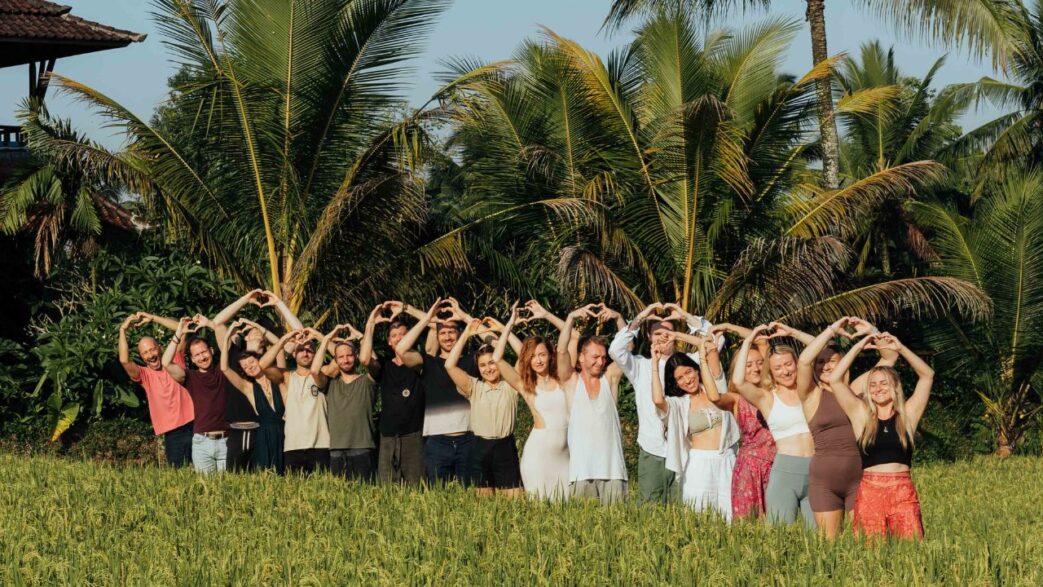1. Know Yourself
People will forget what you said, but people will never forget how you made them feel.
The Breathingcold Facilitator Training focuses on getting participants to connect with their true Self, encouraging them to be authentic and vulnerable when holding space for others.
Breathwork facilitation requires a deep level of self-awareness. When you have a solid understanding of your own thoughts, emotions, triggers, and patterns, you can better navigate your own internal landscape. This self-awareness enables you to approach your role as a facilitator with clarity and authenticity. It helps you recognize your own biases, limitations, and areas of growth, allowing you to create a safe and supportive space for others.
Knowing yourself helps cultivate empathy and compassion towards yourself and others. When you have explored your own inner world and experienced your own vulnerabilities, you can relate more deeply to the experiences and challenges of those you are facilitating. This empathy allows you to hold space for others without judgment and to respond to their needs with compassion and understanding.
Being aware of your own boundaries and self-care needs is essential in maintaining your well-being as a breathwork facilitator. By knowing yourself, you can identify when you need to set limits, take breaks, or seek support for yourself. This self-awareness helps prevent burnout and allows you to show up fully for your participants with the energy and presence they deserve.
Being a breathwork facilitator involves leading by example and modeling the practices you teach. Knowing yourself allows you to be authentic and congruent in your facilitation. When your words, actions, and energy align, participants can sense your genuine presence and are more likely to trust and engage in the process.
As a breathwork facilitator, your own personal growth journey allows you to continually deepen your understanding of yourself and expand your capacity to hold space for others. This ongoing self-work enhances your facilitation skills and enriches your ability to support participants on their own paths of self-discovery.
Knowing yourself as a breathwork facilitator is foundational for creating a safe and transformative space for participants. It enables you to cultivate empathy, set healthy boundaries, regulate your emotions, and lead with authenticity. Ultimately, the more you understand yourself, the better equipped you are to support others in their breathwork journeys.

2. Find Your Breath
At Breathingcold, we don’t believe that one modality is superior to another. We believe in offering a Buffet, exploring all the Breath has to offer, from breathing less to breathing more, from breath holds to functional breathing, using at times the nose, the mouth, focusing on the inhale or the exhale.
We have one goal: that by the end of the training, you fall in love with
THE BREATH.
Finding your style of breathwork is a personal and exploratory journey. And Breathingcold is here to support you along the way.
You will learn and experience different breathwork modalities and techniques, such as Holotropic Breathwork, Rebirthing Breathwork, Wim Hof, Buteyko or Pranayama.
You will be encouraged to craft your own approach which will likely evolve with time. You will explore how each approach affects your body, mind, and emotions. Notice which techniques, rhythms, or styles of breath resonate with you on a deeper level.
Trust your inner guidance and intuition when it comes to choosing your preferred style of breathwork. Listen to your body’s responses and honor what feels right for you. Notice if you feel drawn to a specific breathwork technique, philosophy, or facilitator.
Finding your style of breathwork is an ongoing process. Allow yourself the freedom to explore, adapt, and refine your approach over time. Trust that through self-exploration, experience, and integration, with the support of the community of graduates, you will discover a breathwork style that feels authentic and aligned with your unique self.

WATCH WHAT PEOPLE SAY ABOUT THEIR EXPERIENCE
3. More Than Breathwork
Combining breathwork with practices like ICE BATHS and AUTHENTIC RELATING can create a powerful and transformative experience.
ICE BATH is now commonly used as a powerful tool to improve mental resilience. ICE BATH can help change the relationship with stress, making you more resilient to stressors in daily life.
Ice Bath stimulates the sympathetic nervous system, leading to increased alertness and mental clarity.
Regular ice baths promotes a sense of well-being, reduce symptoms of depression, and improve overall mental health. It helps foster a greater awareness of your physical and emotional states.
We also engage in a variety of AUTHENTIC RELATING exercises during the training. These may include activities such as sharing circles, partner or group dialogues, role-playing, or vulnerability exercises.
Authentic Relating focuses on creating genuine connections and deepening interpersonal relationships through open, honest, and vulnerable communication. It involves engaging in intentional and mindful interactions with others to foster authentic expression, active listening, and empathetic understanding.

4. Community = Together Matters!
Connecting with strangers on day 1, you will leave with friends for life.
The Facilitator Training process involves learning and growing together as a group. Participants go through similar challenging experiences, engage in transformational breath journeys, and explore all the modalities collectively. This shared journey creates a sense of camaraderie and mutual support as participants navigate their own personal growth and development.
During the facilitator training, participants take turns facilitating breathwork and ice bath experiences for each other. This provides an opportunity for peer support, encouragement, and constructive feedback. Participants form connections and create a supportive network where they can learn from each other, share insights, and grow together as facilitators.
Long after the training is over, the participants connect with each other, share their experiences and support one another.

